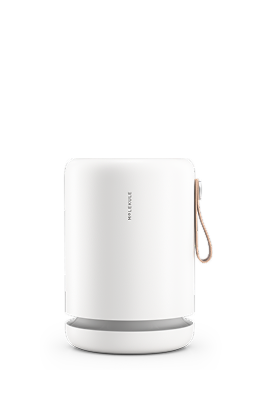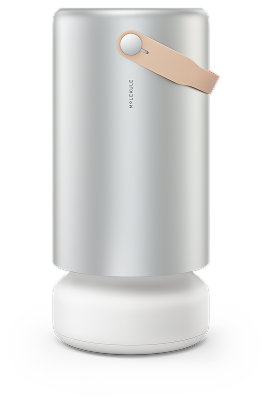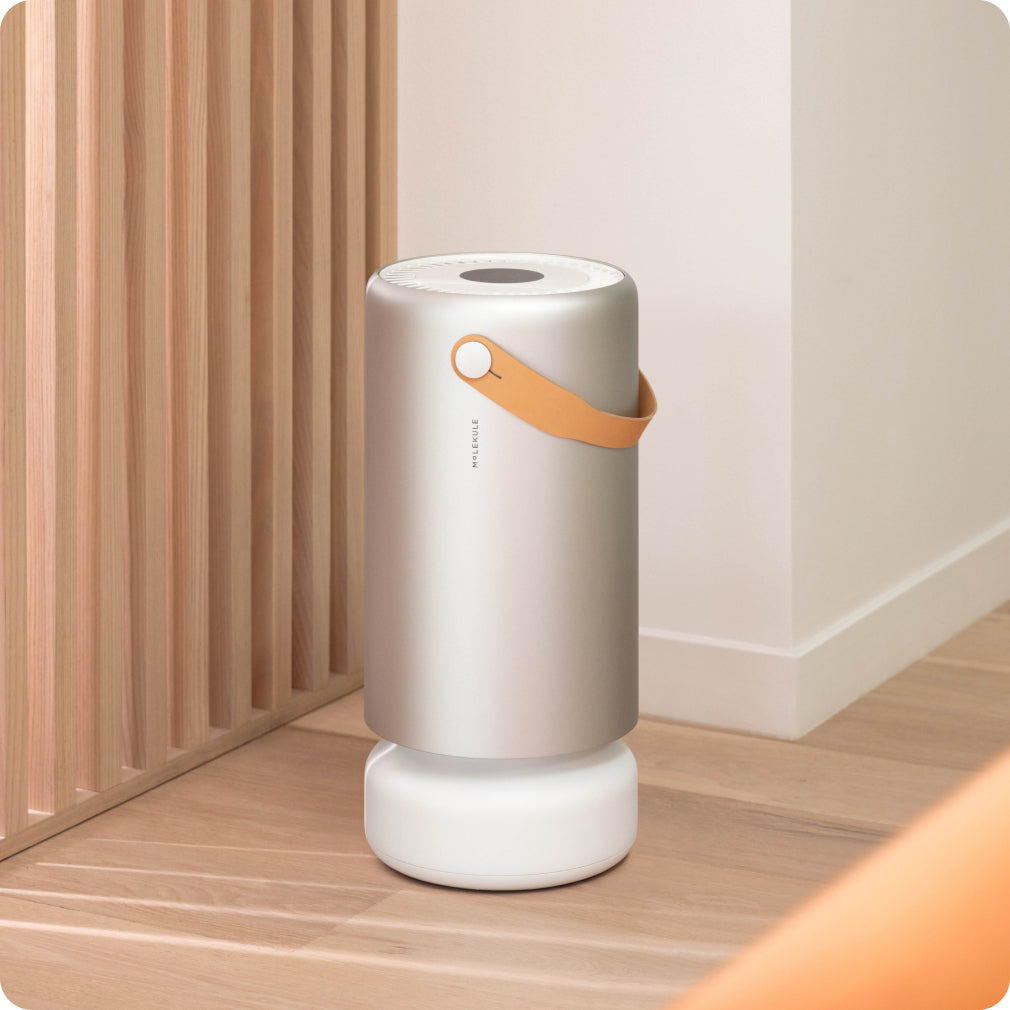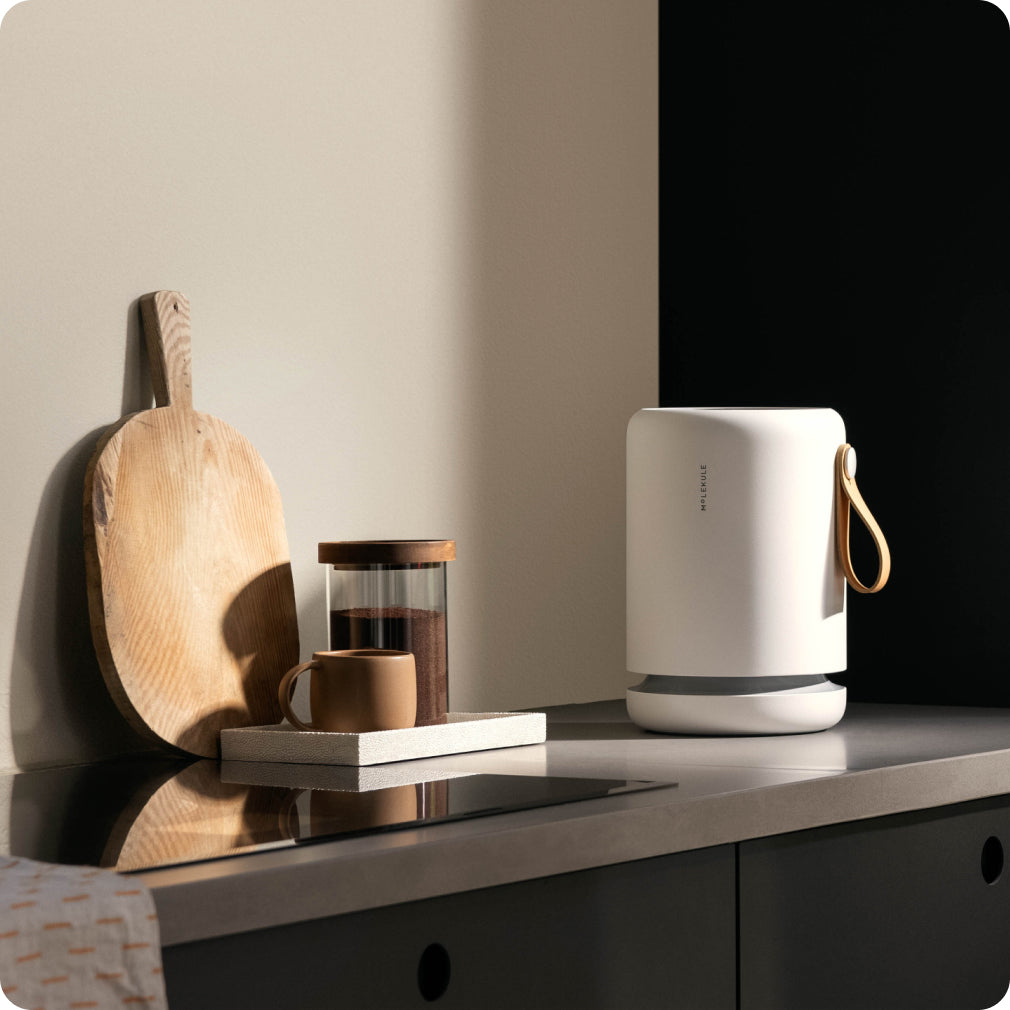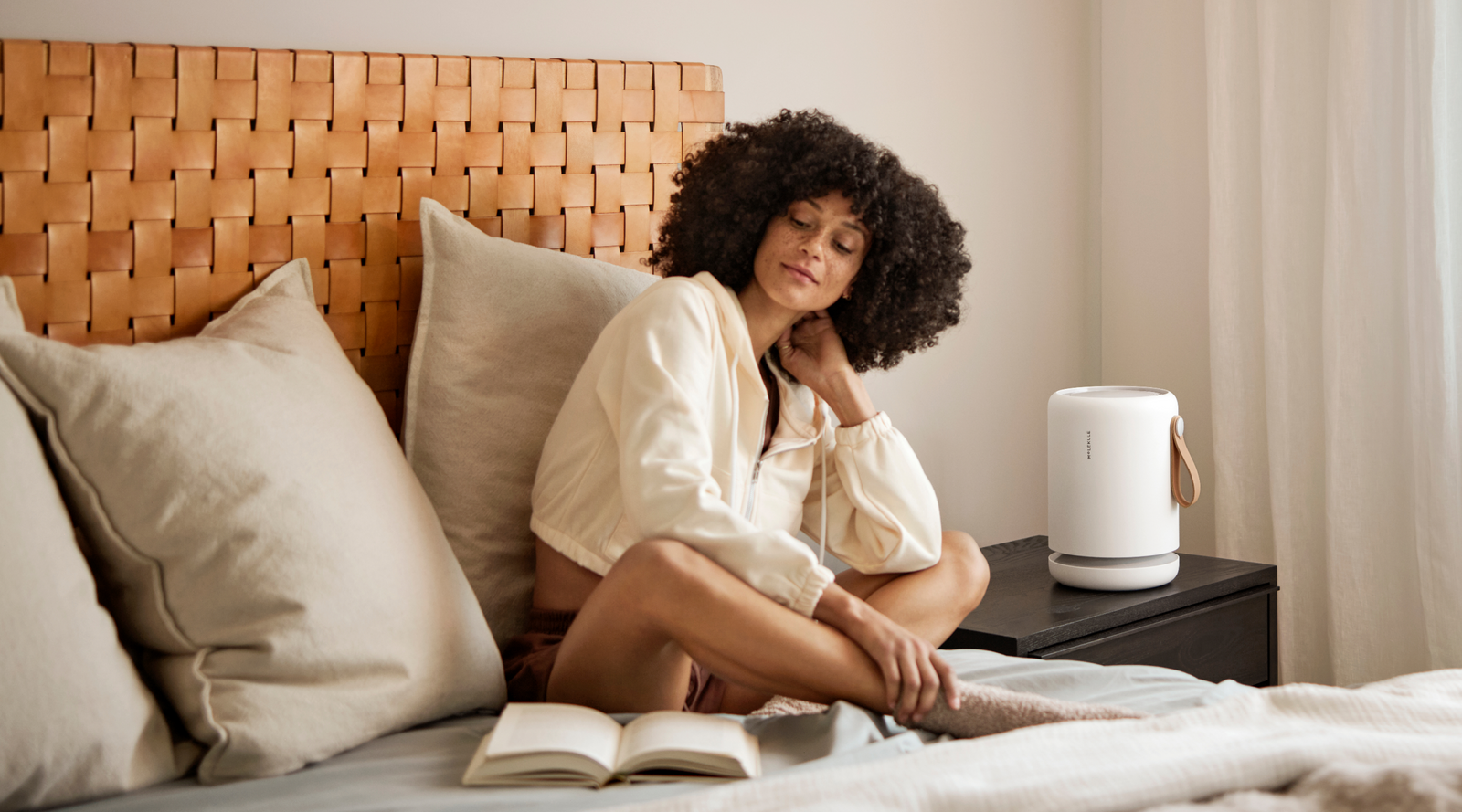Our survey results show connection between sleep and air quality
With so much going on in the world, we’ve all had a few sleepless nights. The CDC recommends that adults need seven to nine hours of sleep per night to maintain a healthy lifestyle. However, that is unfortunately not the case for the average American – in 2022, 35.2% of all adults in the U.S. reported sleeping less than seven hours per night. Most of the factors leading to poor sleep quality are common knowledge. Stress, eating habits, and inconsistent bedtimes are notorious for their negative effects on sleep; however, one piece of the puzzle often goes overlooked: air quality.
To uncover potential links between air quality and sleep, our team surveyed people about their sleep habits and challenges. What are people already trying to improve their sleep? How do seasonal allergies, which are in full swing right now, affect our quality of sleep? Let’s dive in.
The most common sleep behaviors
Let’s start with the fun stuff – if you dream with vivid color, you’re among the majority – 43% of those surveyed dream only in color. 30% of Americans dream in both black & white and color, while only 7% report dreaming in just black & white.
The most popular sleep position for Americans is to sleep on their side (73%). Back- and front-sleeping is far less popular at 30% and 28%, respectively. 3% of people responded to this question with “other,” leading us to believe they may sleep from the ceiling.
One in three people say that anxiety is one of the most common emotions they experience in dreams, followed by happiness at 31%, love and excitement tying at 27%, and fear at 23%.
Trouble strikes at bedtime
There’s no question that having trouble sleeping or falling asleep is a massive challenge for many of us. Our survey data showed that almost a majority (44%) of Americans report having current sleep troubles. Here are some of the most common methods people have tried to get a good night’s rest:

When having sleep struggles, there are a multitude of helpful (and often inventive) tricks folks have tried to help them doze off. Alongside the tried and true methods above, there’s a slew of lesser-used tactics for sleep. Our data showed that 10% of Americans take a cold plunge/bath, 7% try counting sheep, and 6% journal before bed. The survey also found that among those with sleeping problems, 40% of them take medicine (sleeping pills, melatonin, etc.) to help with their sleep.
Sneeze to ZZZ’s
These bedtime routines often ignore common experiences during the day that can contribute to our overall sleep health, such as air quality and seasonal allergies. More than 50 million people in the U.S. experience some type of allergy every year, and allergy season is getting even longer. Those who suffer from allergies know the literal and figurative headache they can create. Symptoms often carry over into nighttime when people are winding down, and can significantly impact sleep quality for the worse.
The environment we create in our homes or apartments has a major effect on our ability to sleep at night. Much of that environment comes down to what’s in our air – allergens, pet dander, smoke, and mold all contribute to sleep quality. Here are the top environmental factors people said negatively affect their sleep:

Of note, 34% of people blame allergies for their sleep problems, second only to temperature (39%). That is over a third of the population placing the brunt of their sleeping issues on allergens, but not nearly as many (15%) view air pollution as a top contributor to sleep issues.
Air quality = sleep quality
While the connection between sleep and air quality is still lesser known, a majority of people seem to understand how important air quality is for our overall health. More than two-thirds (69%) of people feel more comfortable in a space with an air purifier, and a whopping 90% believe that air purifiers are important to have in every indoor space. Of those that have purchased an air purifier, 36% found unexpected benefits, including:
- a general feeling of better or clear air
- reduction of smell
- a cleaner space with less dust
And notably:
- improvement in sleep
- improvement in allergies or congestion

Given this, it’s no surprise that 79% of those who generally own an air purifier keep one in their bedroom. Roughly 4 in 5 air purifier owners use the purifier in their bedroom as they sleep and have been doing so for an average of 3 years. Moreover, 32% of people bought an air purifier specifically because they thought it would improve their sleep quality, and of that group, 91% found that air purifiers did in fact improve their sleep quality.
Another key benefit to keeping an air purifier in the bedroom is the soothing white noise created by the device. Our survey found that 60% of people use air purifiers as white noise machines to help them sleep. Molekule air purifiers produce both white noise and pink noise, which is ideal for sleeping. These results are notable given a recent third-party study found that 38% of people fell asleep faster while listening to white noise.
Don’t let sleep get left in the dust:
Nearly half of the population struggles with sleep, yet only 49% of the general population own air purifiers for their home. Lack of knowledge is one primary cause – 29% of people haven’t bought an air purifier for this reason. Purchasing an air purifier can be an overwhelming experience due to the sheer number of options available. More than 80% of people who purchase air purifiers do at least some research before deciding which brand to purchase.
Our goal at Molekule is to provide you with the resources to make the best and most informed decision for your home and family. For more information about how air quality can affect sleep, check out a few additional resources on our blog:
- How Does Indoor Air Quality Impact Sleep?
- Do sleep trackers work?
- 3 Deeply Restorative Ways to Support Better Sleep
- Sleep Hygiene: How environment and air quality impact sleep health
- Should you sleep with an air purifier on?
- Can Air Pollution Cause Sleep Apnea?
- 4 Steps to Refreshing Sleep for Allergy Sufferers
